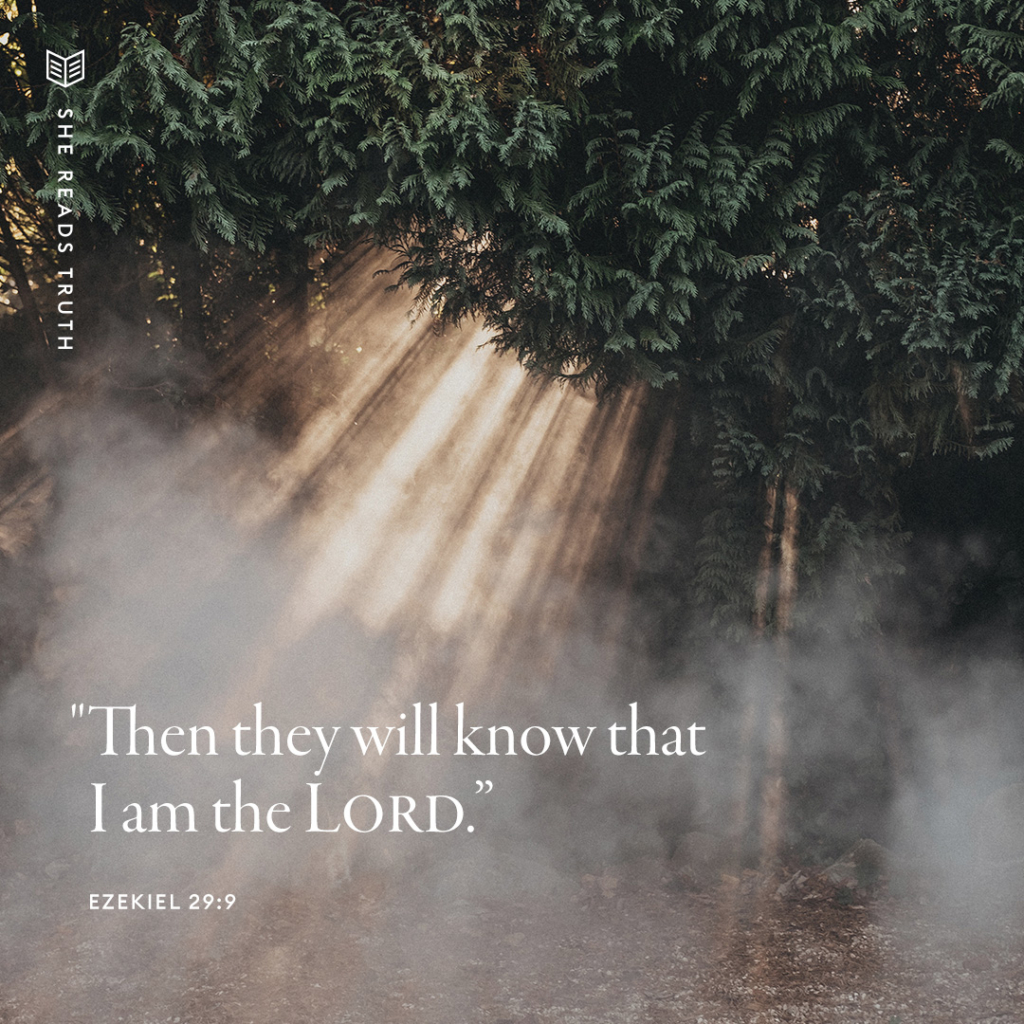A Prophecy of Egypt’s Ruin
Open Your Bible
Ezekiel 29:1-21, Ezekiel 30:1-26, Romans 5:6-11
BY Yana Conner
In my early twenties, a mentor of mine sat me down to share with me a concept called the “good-bad split” from Henry Cloud’s book Changes That Heal. This concept speaks of how, as humans, we tend to either go all good on a person—only seeing the savory parts of them, or all bad—solely viewing them through the lens of their unsavory ones. She then explained that my emotional and spiritual immaturity resulted from my inability to see people comprehensively, taking note of their “bad” and “good” parts. It hurt, but it was helpful.
Her wisdom has carried me through a host of conflicts and disappointments over the years. It’s also greatly challenged my view of God. You see, I can tend to focus solely on God’s “savory parts”—His compassion and grace. I’d rather ignore or even erase the parts of Him I find confusing or uncomfortable—like His wrath and judgment. But our God wants to be known, worshiped, and loved comprehensively.
In Ezekiel, God communicates over sixty times that the desired outcome of His actions is to be known as the Lord, Yahweh. In the book of Exodus, He sought to make Himself known through acts of deliverance, and in Ezekiel, He makes Himself known through His acts of judgment. Yes, He is a “compassionate and gracious God, slow to anger and abounding in faithful love and truth…forgiving iniquity, rebellion, and sin” (Exodus 34:6–7). He also “will not leave the guilty unpunished” (v.7). Like my momma sometimes reminded me that she was not one of my little friends to be trifled with, Yahweh is making it clear that He too is not to be trifled with by Pharoah, Israel, or anyone else. He is a God of grace and truth, compassionate love, and righteous judgment.
When we isolate His compassionate love from His righteous judgment, we do not see God comprehensively and create Him into an image of our own making. And though we do not intend to split God in two, how many worship songs do we sing about God’s righteous wrath? How many times have we followed a chronological reading plan and said, “I can’t wait to get to Matthew”? When we create this kind of dichotomy in our knowledge and worship of God, we can either go all bad on Him—only seeing Him as a wrathful, or go all good—only acknowledging Him as a gracious Savior. However, He is always both.
During this Lenten season, we are reminded that at the cross, He graciously saves prideful and idolatrous sinners by pouring out His wrath on Himself in the person of Jesus Christ. However, if we persist in splitting God’s character, we will either cheapen His sacrifice at Calvary or miss it altogether. We must seek to know Him as He has revealed Himself to us in Scripture.

61 thoughts on "A Prophecy of Egypt’s Ruin"
-
God is both righteous and graceful – we need to hold up both sides in order to understand God – and ourselves – more fully♥️ Thank u for a good reminder!!
-
Amen
-
It’s better to be punished by your Father, who will deliver you and comfort you after then punished by a God you denied
-
Wow the devotional really connected the dots on who God is, which is omnipotence(meaning above all things) and it’s like a cry of alert to hear that God is good at all times and His love doesn’t stop to punish us
-
I love that analogy from Yana Connor. Mercy



Post Comments (61)